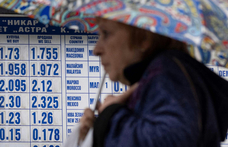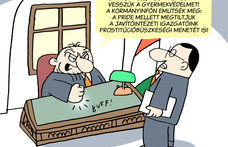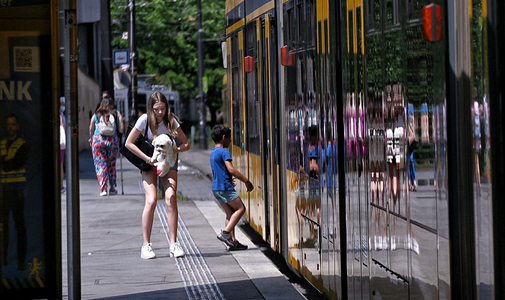Gyurcsánys nationalities policy
Ferenc Gyurcsány has come up with three new proposals on the nationalities question. Two of them - setting up a parliamentary committee to deal with Hungarians abroad and enshrining a "sense of responsibility" towards them in the constitution - are of primarily symbolic importance. The "neighbouring country Hungarian" identity card is a watered down version of Fidesz's dual citizenship rhetoric, and is likely to be no more popular in Brussels than amongst the neighbouring country Hungarians themselves.
Setting up a committee to deal with Hungarians abroad is hardly a challenge, since it doesn't create any new obligations. Any majority government could take such a step. But with the best will in the world, it's hard to see such a poor excuse for a committee inspiring great confidence.
The second proposal - a constitutional expression of responsibility towards Hungarians abroad - is only a pointless gesture at first sight. All governments since 1989 have made symbolic gestures of support and given money to Hungarians beyond the borders. But in reality, Gyurcsány is laying a trap for Fidesz.
If Fidesz votes for a constitutional amendment, then Gyurcsány appears as a patriotic statesman, striving for consensus, and Orbán is downgraded from being the great protector of our cousins in the Carpathian Basin to second fiddle, able only to nod through the government's brilliant initiative.
Of course, the opposition can make a fuss. It can say, with reason, that this measure offers no increased support for minority Hungarians in practice. But that would be an own-goal. Because if they did that, then Gyurcsány would climb onto his high horse. His features contorted with worried pathos, he would remind his critics that when they were in government they insisted that the value of the Status Law was not in the financial benefits it would bring, but in its spiritual symbolism.
The Prime Minister has learned from his predecessors that the immense advantage of symbolic gestures is that they don't cost a penny. And so they're easily sold both here and abroad. Neither Hungarians abroad - whom we are told are yearning for precisely such gestures - nor Hungarians here at home - the Socialist voter concerned about seeing his job washed away in a tide of "Romanian" immigration - can take exception to this. So quibbles Fidesz may have can easily be used against them on both sides of the border.
The third proposal is the most politically difficult. Guyrcsány has gone further than Horn, Kovács or Medgyessy ever did. The problem is that the PM has climbed out of one hole only to fall into another. The Socialist Party's Kádár-era reflexes ("neighbourliness comes first, let's not indulge our historical wounds") have dominated their nationalities policy - or the lack of it. Anything they tried was no more than overcompensating for a guilty conscience at their pre-1989 past. It would seem that this "Hungarian ID" is no more than a watered down version of Fidesz's dual nationality rhetoric. It's almost as if the senior coalition party can do no better than keep stumm and ape nationalistic ragings.
Gyurcsány's idea is that the ancestors of today's Hungarians abroad were Hungarian subjects before Trianon - and so they are entitled to the document under civil law, not for historical reasons. That's possibly true - except that on the same basis Romanians and Serbs who lived under the Hungarian monarchy were also Hungarian citizens. Not to mention every single Slovak.
There are parallels abroad, of course. Portugal makes exceptions for Brazil, France for Algeria, and the United Kingdom does the same for its former empire. But there's a difference - they don't decide on an ethnic basis - the rights in question are granted to the entire country. To do otherwise would break EU law.
But Gyurcsány won't do badly out of this. "I did my best," he'll say, "but these insensitive cosmopolitans in Brussels..." And if it does work, let's be honest - would it really do the Vojvodina Hungarians any good if they could slip easily across the border, whilst their Serbian neighbour had to wait in line? I have my doubts...
















